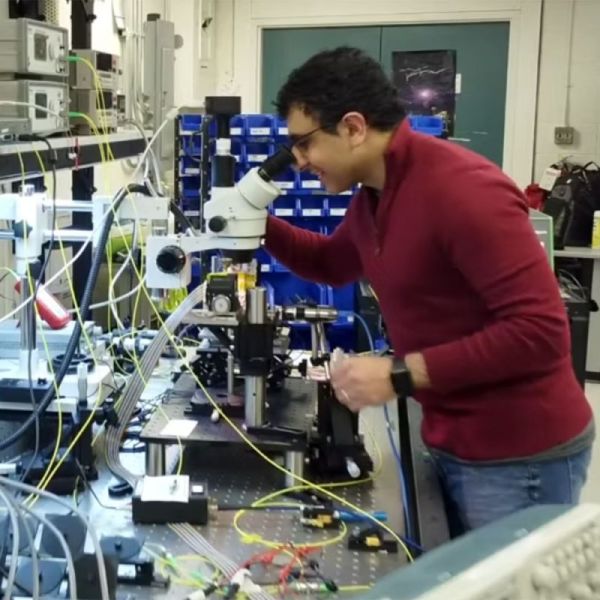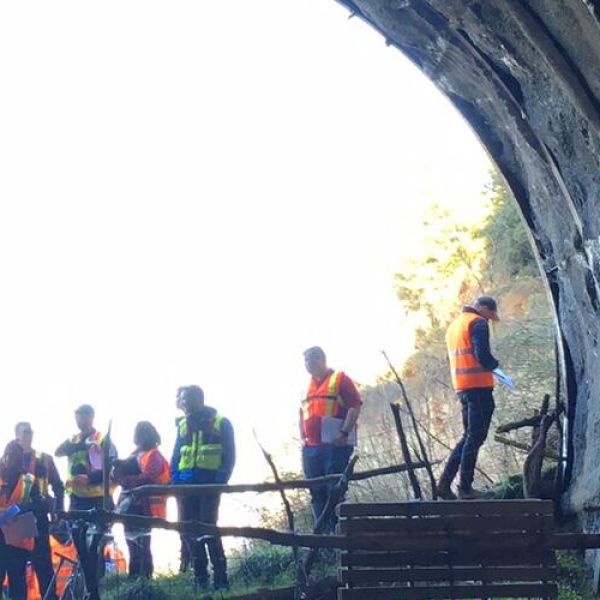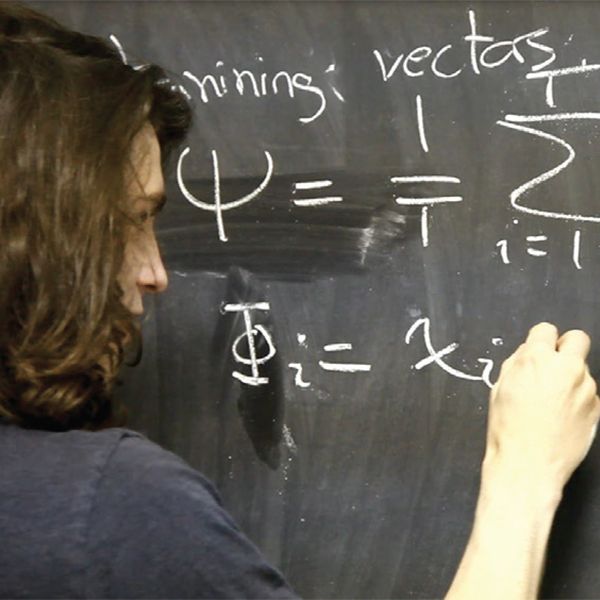Engineering and Applied Physics
In Queen’s collaborative graduate programs in engineering and applied physics, research is centred around themes that use basic science and physics to improve quality of life and to solve current or future problems facing people both in Canada and worldwide. This research spans areas of photonics, quantum information technology, medical physics, non-destructive evaluation, materials physics, electronic device physics and plasma physics.
Engineering Physics

Engineering physics combines the practical skills of engineering with the deep knowledge of a scientist, applying analytical and lateral thinking to modern engineering challenges. Courses in quantum mechanics, laser optics and nanotechnology will help prepare you for an engineering career at the leading edge of technology. You will acquire advanced problem-solving and instrumentation skills, and will be able to apply superior mathematical, analytical and abstract-thinking ability to modern engineering challenges.
GeoEngineering
Unique in North America, the GeoEngineering program is a collaboration between faculty members at Queen’s University and the Royal Military College (RMC). Drawn from three engineering departments at the two universities, the GeoEngineering Centre’s members are dedicated to advancing knowledge in geotechnical, geohydrological, geochemical, geohazards, and cold regions. The program links three accredited graduate programs to provide shared learning experiences with interdisciplinary content: Civil Engineering (Queen’s); Geological Sciences & Geological Engineering (Queen’s); and Civil Engineering (RMC). Through the development of collaborative research projects, with involvement of government and industrial partners, the GeoEngineering Centre provides exciting opportunities for graduate student researchers in specialized or multi-disciplinary fields of interest.
Geological Engineering

Geological engineers combine core engineering fundamentals with a broad slate of geological knowledge, ranging from geology to geotechnical engineering. You will study physics, chemistry, applied mathematics, and natural processes such as earthquakes, volcanoes, plate tectonics, and mountain formation. You will also acquire field, laboratory, and computer simulation skills and training in state-of-the-art geological investigation and engineering analysis tools.
Mathematics & Engineering

The only Engineering program in North America primarily offered by a mathematics department, Mathematics and Engineering blends engineering with advanced mathematics and provides a rigorous treatment of engineering concepts and ideas. You will learn to analyze and solve engineering problems requiring sophisticated mathematical skills, such as those involving modern communications, control, and mechatronic systems, as well as emerging areas such as artificial intelligence and data science.
Physics, Engineering Physics & Astronomy

A degree in Physics provides you with training in theory, computation, statistical modelling, and experimental methods as you pursue problems in fundamental and applied research. Physicists design mathematical models to describe complex phenomena and test these models by making observations, conducting experiments, or running numerical simulations. The skills obtained are highly sought after and transferrable to a wide range of fields. The degree leads to careers in academia and government-funded research centres as well as the private sector fields of finance, medicine, technology, and data analytics, to name just a few.

